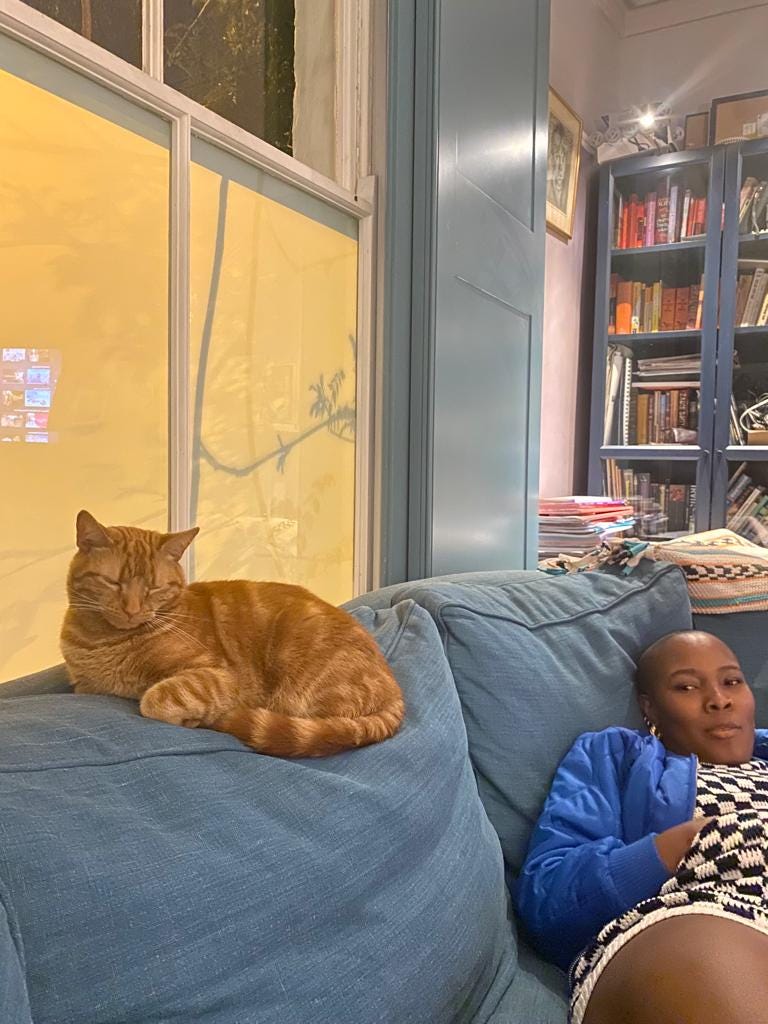I recently completed a film course, and during one of the pitching sessions, the facilitator went around the room and asked us if we were more dog or cat. Cats being the people in the room who set the tone, their body language says - I’m here, I’m confident, and I know my position. Take me as I am. Whereas dogs, wanting to be well-liked, are led by the cats in the room - their body language might be reflective of this - they may lean in rather than leaning back and observing the room like a cat.
I’m a dog, I said, finding myself envious of the other cats in the room. Those of us who have grown up with cats know that cat energy is well and truly a thing. Cats don’t make you feel like they NEED you, the cats I’ve grown up with have always been fiercely independent and sure of who they are, but dogs, on the other hand, they live to please others (look, I’m not looking to start a cat vs dog war here, I love them both, but you get the point).
Why, then, have I been positioning myself as a dog? At that moment, I realised I didn’t want to be dog but that I want to be even a little more cat. I don’t want my desire to be liked to mean that I’ll bend, twist, and squish myself into something I think the other person wants. I mean this not only in a pitch setting but in my day-to-day life.
I think there are lots of reasons as to why I’ve felt the need to be dog - historically, I haven’t loved conflict or disappointing other people, and while, in theory, these aren’t bad traits to have, there are moments in which conflict is unavoidable and also, healthy - a part of life and frankly not everyone is going to like you. I’ve discovered that living as a dog can't change that.
As a black woman in workplace scenarios, there can be lots of additional layers of ‘stuff’ that we have to deal with - whether people are aware of this or not. There’s emotional labour that comes with it, in which you may end up playing the role of councillor and you may also find yourself being spoken to in ways that you know wouldn’t happen as a straight, white male.
But we are taught that our role is to nurture both at home and at work, even if it kills us. I'm over the idea that suffering is unavoidable, so I want to embrace more of that IDGAF cat energy. How much of my emotional well-being have I sacrificed through being obsessed with what other people think, how they view me or whether they’ll like me if I say this or do that?
Through the help of therapy, I’ve identified mothering patterns in which I fear that saying ‘no’ or ‘that I have no more to give’ will lead to rejection or upset from those around me. Which is why the first part of embracing my inner cat has been to look inwards and ask myself key questions: What do I want? Am I operating from a place of fear? How does this make me feel? Does it matter if this person who doesn't know me doesn't like me?
All this to say that one of my biggest goals this year has been to release the importance I have up until now placed on likability.
#TeamCat





